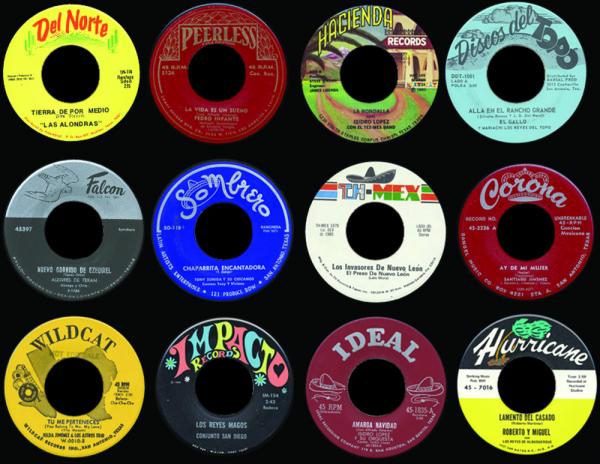Tune In Tuesdays: Frontera Collection of Mexican and Mexican American Recordings

45 Labels from the Frontera Collection
Courtesy the Arhoolie Foundation,www.arhoolie.org.

45 Labels from the Frontera Collection
Courtesy the Arhoolie Foundation,www.arhoolie.org.
This post is part of our “Tune In Tuesdays” series, highlighting some of the projects NEH has supported to preserve and provide access to rich audiovisual materials important to humanities research, teaching, and the public interest.
Music producer Chris Strachwitz began collecting recordings of Mexican and Mexican-American music nearly six decades ago, gathering the music of the southwestern United States and Mexico. The Strachwitz Frontera Collection of Mexican and Mexican American Recordings is now the world’s largest and most complete collection of Mexican American vernacular music, containing some 150,000 recordings from small regional recording labels. Now you can learn about the sounds of Mexican American culture and the rich artistic landscape of the borderlands at the UCLA Frontera Web site, which has been supported by four NEH grants to the Arhoolie Foundation since 2006. The Frontera project, a collaboration between the Arhoolie Foundation, the UCLA Digital Library, and the UCLA Chicano Studies Research Center, has now preserved over 100,000 recordings from 33-rpm, 78-rpm, and 45-rpm discs as well as cassettes, LPs, and original reel-to-reel masters.
Showcasing music recorded in the United States and Mexico between 1904 and 1994, the collection exhibits both deep roots—many of the songs in the collection have been sung for over 100 years, some with origins in Mexico—and more recent conflicts. Older corridos (folk ballads) describe pre-revolutionary “Robin Hood” bandits and heroes of the Mexican Revolution, while more recent ones tell of workers’ protests in the melon fields of the Rio Grande Valley, the death of President Kennedy, and letters from the front in Vietnam.
The site displays the richness of Mexican and Mexican American musical culture through biographies, album covers, and musical samples. For example, you can learn about Los Tigres Del Norte (The Tigers of the North), a four-brother band originally from Sinaloa and now based in San Jose, and listen to audio excerpts of their norteño music, a style related to polka featuring accordion music. You can sample selections from Pedro Infante (1917-1957), a lauded Mexican actor and singer of mariachi and ranchera music; Hermanas Mendoza, a Mexican folk group; and Mariachi Coculense, an influential Mexican mariachi band. The site allows searching and filtering by artist, label, recording, genre, and subject. Check it out to learn more about Latino music and culture today!







